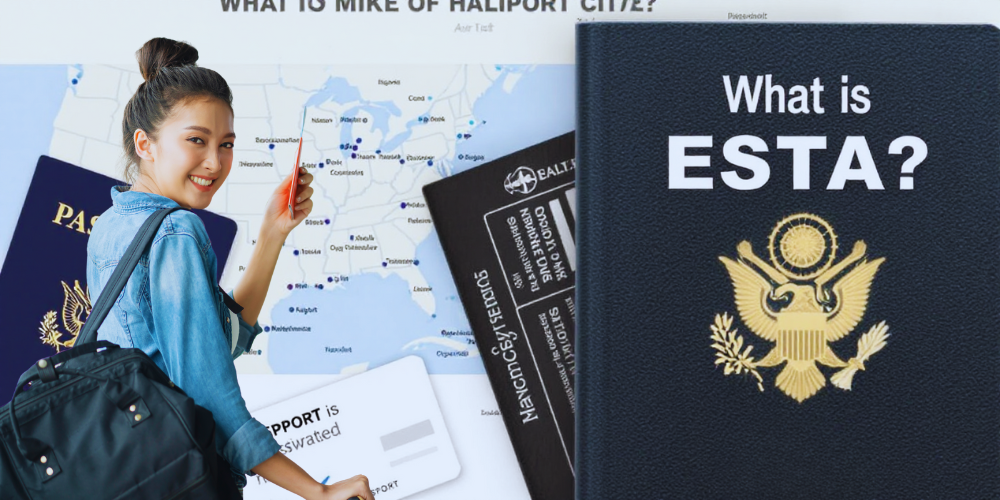--------- Understanding Your Status: Are You a US Citizen or US National?
Jul 3, 2024

Understanding the distinctions between a US citizen and a US national is crucial for travelers and those considering a move to the United States. While both statuses offer legal rights and protections under US law, there are important differences in the rights, privileges, and responsibilities each status confers. This guide will provide a comprehensive overview to help you understand these differences and determine your status.
Definitions
US Citizen
A US citizen is someone who, by birth or naturalization, has been granted full rights and privileges under US law. This status allows individuals to live and work in the United States, vote in federal elections, and enjoy all the protections provided by the US Constitution.
US National
A US national is a person who owes their allegiance to the United States but is not necessarily a US citizen. This status typically applies to individuals born in American Samoa or Swains Island. US nationals have many of the same protections as US citizens but do not have the right to vote in federal elections or run for federal office.
Historical Background
The terms "US citizen" and "US national" have evolved over time, shaped by legal and historical milestones. Understanding this evolution helps clarify the current distinctions and legal implications of each status.
Who Qualifies as a US National?
- Birth in Outlying Possessions: Individuals born in American Samoa or Swains Island automatically qualify as US nationals.
- Parentage: Children born to US national parents may also qualify.
- Naturalization: Certain individuals can apply for naturalization as US nationals under specific conditions.
US nationals enjoy many protections under US law, including the right to live and work in the US and its territories, but they lack some political rights reserved for citizens.
Who is Considered a Citizen of the United States?
- Birthright Citizenship (Jus Soli): Anyone born on US soil, including the 50 states, the District of Columbia, and territories like Puerto Rico, the US Virgin Islands, and Guam, automatically becomes a US citizen.
- Citizenship Through Parents (Jus Sanguinis): Children born abroad to US citizen parents may acquire citizenship, provided certain legal conditions are met.
- Naturalization: Foreign nationals can become US citizens through a legal process that includes residency requirements, language proficiency, and knowledge of US civics.
US citizens have full political rights, including voting in federal, state, and local elections, and are eligible to run for federal office.
Paths to Becoming a US Citizen
- Birth in the US or Its Territories: Automatic citizenship is granted at birth.
- Citizenship Through US Citizen Parents: Children born abroad to US citizens can obtain citizenship.
- Naturalization: A legal process that foreign nationals undergo to become US citizens, involving residency requirements, language proficiency, and a civics test.
What is the Difference Between a Citizen and Citizenship?
- Citizen: A person who holds citizenship in a country and enjoys the rights and privileges granted by that status.
- Citizenship: The legal relationship between an individual and a country, granting the individual specific rights and responsibilities.
Being a citizen involves legal rights, such as voting and holding public office, and duties, like obeying laws and paying taxes.
Key Differences Between US Citizens and US Nationals
- Political Rights: US citizens can vote in federal elections and run for federal office, while US nationals cannot.
- Passports: US citizens receive a passport indicating their citizenship, while US nationals have passports indicating their national status.
- Legal Obligations: Both must obey US laws and pay taxes, but their political rights differ significantly.
- Travel and Immigration: US citizens can sponsor a wider range of family members for immigration to the US compared to US nationals.
Benefits and Limitations of US Citizenship
- Full Political Participation: Right to vote in all elections and run for federal office.
- Government Services: Access to a broader range of services and benefits.
- International Protection: Assistance and protection by US embassies and consulates abroad.
Benefits and Limitations of US National Status
- Limited Political Participation: Cannot vote in federal elections or run for federal office.
- Government Services: Access to some government services and benefits, though not as extensive as those available to citizens.
- International Protection: Similar to US citizens, nationals receive protection by US embassies and consulates abroad.
How Do I Know if I'm a US Citizen?
- Birth Records: Check if you were born in the US or its territories.
- Parentage: Verify if your parents were US citizens at the time of your birth.
- Naturalization: If you have undergone the naturalization process, you should possess a certificate of naturalization.
Consult legal or governmental resources for confirmation if you're unsure of your status.
How to Transition from US National to US Citizen
- Eligibility Requirements: Must meet residency and other legal criteria.
- Application Process: Submit necessary forms and documentation, pass the citizenship test, and complete an interview.
- Benefits of Transition: Gaining full political rights and access to additional government services and benefits.
Common Misconceptions
- Myth: US nationals have the same rights as US citizens. Reality: While they share many protections, key political rights differ.
- Myth: All US-born individuals are citizens. Reality: Individuals born in certain US territories may be nationals, not citizens.
FAQs About US Citizens and US Nationals
- Can US nationals become US citizens? Yes, through naturalization if they meet the eligibility requirements.
- Do US nationals have US passports? Yes, but their passports indicate their national status.
- Can US nationals vote in federal elections? No, only US citizens can vote in federal elections.
Understanding whether you are a US citizen or a US national is crucial for recognizing your rights and responsibilities under US law. Both statuses offer important protections, but there are significant differences in political rights and privileges. Always seek professional legal advice if you have questions about your status.
Have questions or experiences to share about US citizenship and national status? Leave a comment below! For personalized assistance, consider contacting an immigration attorney. Stay informed to ensure you fully understand your rights and responsibilities.
Recent Articles

Top Digital Nomad Visas in 2026 (Portugal, Croatia, Estonia & More)
Remote work isn’t a trend anymore — it’s infrastructure. By 2026, governments aren’t just to

Seasonal Travel Planning: Spring in Europe (Visa Tips Included)
Spring—stretching from March through May—hits a sweet spot many travelers overlook. The continen

Best Schengen Countries to Visit with One Visa
A Schengen visa is one of the most powerful travel documents for exploring Europe. With a single app

ETIAS Explained: Europe’s New Travel Authorization System
Europe is shaking up short-stay travel, and if you’ve ever zipped across the continent visa-free,

7 Common U.S. Visa Mistakes That Cause Delays or Rejection
U.S. visa delays and refusals are rarely caused by a single dramatic mistake. More often, they stem

ESTA Explained: Who Needs It and How to Apply in 2026
The ESTA—short for Electronic System for Travel Authorization—is the quiet gatekeeper behind vis
Read More

Top Digital Nomad Visas in 2026 (Portugal, Croatia, Estonia & More)

Seasonal Travel Planning: Spring in Europe (Visa Tips Included)

Best Schengen Countries to Visit with One Visa

ETIAS Explained: Europe’s New Travel Authorization System

7 Common U.S. Visa Mistakes That Cause Delays or Rejection

ESTA Explained: Who Needs It and How to Apply in 2026

Welcome to the VisaTravel blog. We know that navigating the maze of visa applications and online forms can be as tricky as choosing the perfect travel playlist (which is all we want you worrying about anyway).
Throughout our years of experience, though, we’ve uncovered a mountain of knowledge which, via this blog, we’re sharing with you! Whether you're diving into the world of travel visas, wondering about the ESTA online hustle, or just trying to figure out the DS160 form, think of us as your online concierge, here to make the process easy and most of all, clear.
At this point in our global context, who has time for endless paperwork and confusing legal jargon? No one. That's why we're all about spilling the tea on online visa hacks, easier-to-work-with DS160 forms, and giving you tips on everything from tourist visas to immigration, to that last-minute ESTA online adventure.
So, just plug in a word you’re curious about on the search bar, and boom. We've got the tips, tricks, and insider info to help you (and anyone else you may be traveling with) get to your travel destination with the confidence of a seasoned traveler.
Now go explore!
 U.S. Visa
U.S. Visa
 Canada eTA
Canada eTA
 Schengen Visa
Schengen Visa
 New Zealand eTA
New Zealand eTA
 United Kingdom eTA
United Kingdom eTA
 Australia eVisitor
Australia eVisitor
 Vietnam eVisa
Vietnam eVisa
 Egypt eVisa
Egypt eVisa
 Singapore Arrival Card
Singapore Arrival Card
 Sri Lanka eVisa
Sri Lanka eVisa




